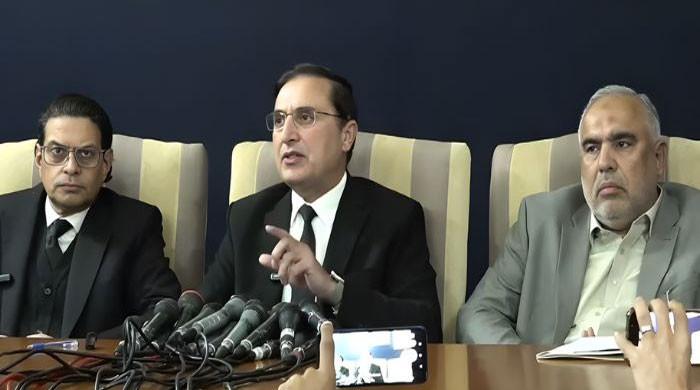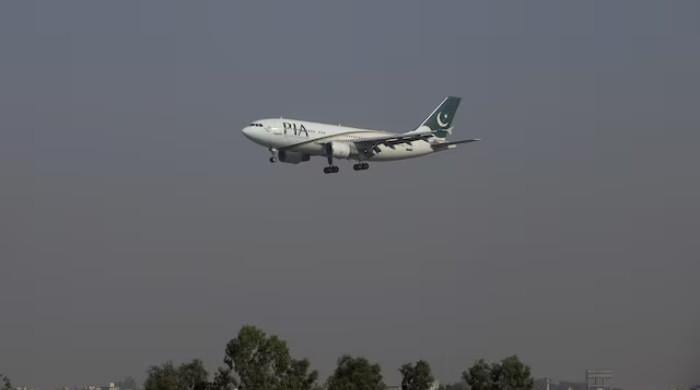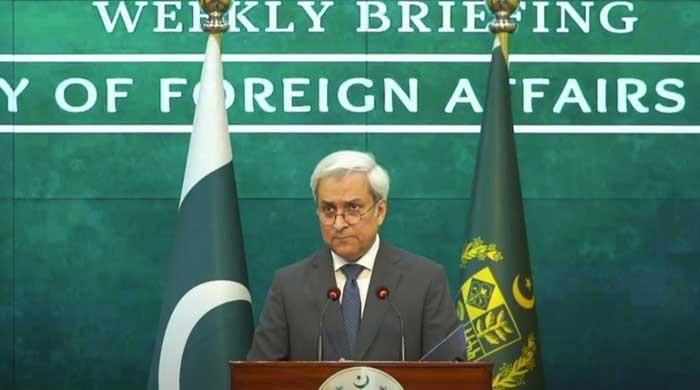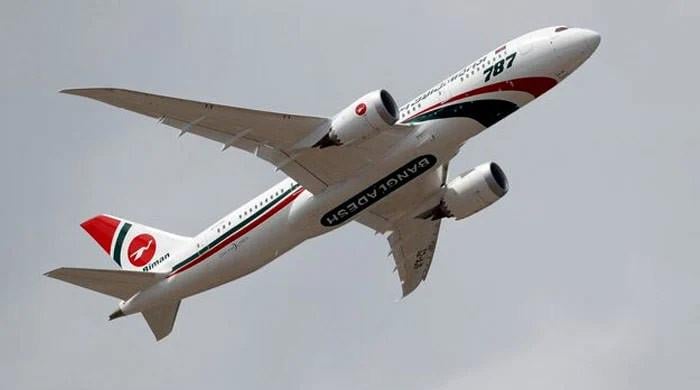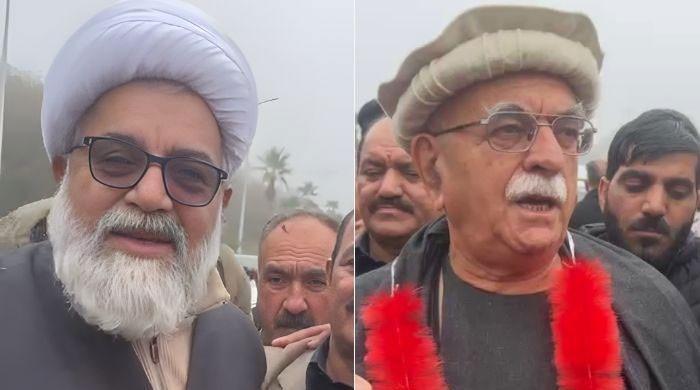PPP sees revival, rebirth in Britain
The rallying figure and the person who seems to have recharged the party is none other than Bilawal Bhutto Zardari, the PPP chairman
January 10, 2017
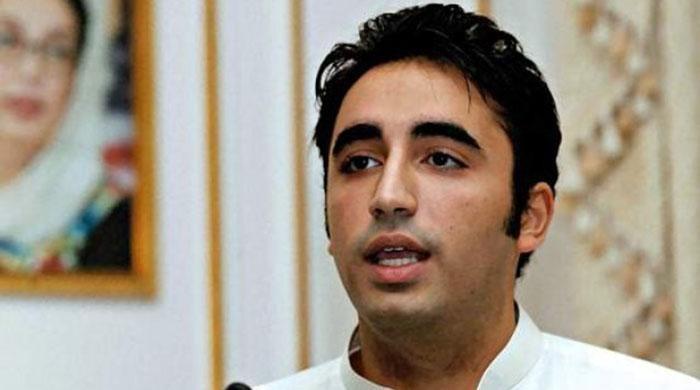
LONDON: Pakistan People’s Party (PPP) is seeing unprecedented revival in Britain after many years of inactivity that had rendered it almost irrelevant following the assassination of Mohtarma Benazir Bhutto and PPP-P’s advent in power in 2008. And the rallying figure and the person who seems to have recharged the party is none other than Bilawal Bhutto Zardari, the PPP chairman.
PPP in UK had reached its crescendo of activity soon after the announcement of the date of Mohtarma Benazir Bhutto’s to return to Pakistan late 2007. Every PPP worker tried to contribute his/her bit to make her return memorable, hundreds returned with her in her plane while others followed in chartered flights.
Disenchantment with the PPP grew following her death due to disconnect between the party leadership. It grew deeper during the few years, and especially when in power both at the Centre and Azad Kashmir, the typical jiyala fervor vanished as not only the leadership in Pakistan nor Azad Kashmir paid little or no heed to the workers.
However, things have started changing after Bilawal Bhutto’s increased interest and participation in Pakistan’s political affairs and his vocal stance on issues of critical importance – once taken up by his grandfather Zulfikar Ali Bhutto and mother martyred Benazir Bhutto. PPP Jiyalas appreciate his bold, brave and categorical denunciation of extremism, sectarianism and attempted Talibanisation.
This change was visible in the great enthusiasm and vigor shown by the party leaders and workers – though divided in two camps— at this year’s death anniversary of Benazir Bhutto Shaheed observed in various cities in Britain and Europe. Everyone tried to outdo each other in organizing befitting events across Britain, attended by hundreds of charged and enthusiastic PPP activists.
These events were not only large in numbers but also well-organized and the enthusiasm displayed was reminiscent of the past when the PPP workers were known for their high-spirited attachment to Bhutto’s populist politics. Events were also held in several European cities where the participation of PPP jiyalas was notable because of high attendance.
There was a time when the PPP was the single largest Pakistani party in Britain and commanded undivided support of the community. It was such a potent force that in mid 80s its paid membership reached over 20,000 – becoming, by British standards of paid membership, the fourth largest party.
A senior PPP leader, on condition of anonymity, told that during the last government of PPP in the centre and Azad Kashmir, workers were neglected and the PPP ministers paid them no respect in any sense and no attention was given to their genuine grievances. Visiting PPP ministers were seen holding meetings comfortably with the MQM and PML-N rather than their own devoted jiyalas.
In the last few years the two parties that made big inroads in the Pakistani Diaspora are undoubtedly Pakistan Muslim League (N) and Pakistan Tehreek-e-Insfaaf (PTI). The two parties got more space due to the fact that PPP did not seem to be interested to sustain itself and had lost its traditional verve and spirit completely.
Britain matters a lot to PPP because it is from here that Zulfikar Ali Bhutto launched and initiated several campaigns; Benazir Bhutto made it second home and has a flat here on the Queen’s Gate; Bilawal and sisters studied here and his uncles Shahnawaz Bhutto and Murtaza Bhutto spent large parts of their lives in London; and the only surviving Bhutto child Sanam Bhutto lives in central London.
It was in London that the former prime minister of Pakistan and founder of PPP attended a large meeting of Pakistani left-wing activists at the Conway Hall in 1968 vowing to take Pakistan in the democratic direction. It’s in the same city where Benazir negotiated with Pervez Musharraf her return to Pakistan and the Charter of Democracy was signed here too.
After Zulfikar Ali Bhutto’s government was overthrown by dictator Zia-ul-Haq and ZA Bhutto hanged, thousands of PPP activists left Pakistan for Britain either after facing the harsh martial law imprisonment and torture or before being arrested or by simply taking hazardous journeys out of Pakistan to escape persecution and prosecution at the hands of repressive martial law regime.
Pakistan’s former High Commissioner to the United Kingdom Wajid Shamsul Hasan, who knew ZA Bhutto and went on to become trusted advisor to Benazir Bhutto and Asif Ali Zardari, recalled how Zulfikar Ali Bhutto, after resigning from Ayub government, had chosen UK for his political activities.
“He had held a memorable meeting of several thousand Pakistanis in Bradford. What sort of devoted following he had in UK came out in full force after his arrest by General Zia when thousands used to hold rallies to protest against martial law and in support of Bhutto. The biggest rallies ever by Pakistani Diaspora in UK were witnessed when people gathered in Trafalgar Square to protest against his execution by military dictator General Ziaul Haq. The protests in front of Pakistan High Commission, 10 Downing Street and Parliament House as well in major cities continued for days.”
Wajid Shamsul Hasan said Pakistani Diaspora holds ZA Bhutto in highest of esteem for his contribution for their welfare. “It was SZAB who gave all Pakistanis right to have passports facilitating them to seek employment abroad. It was this major step that opened for Pakistanis job opportunities in UK and Middle East making the contribution of expatriate Pakistanis one of the major chunk of foreign exchange earning that continues to this day.
Wajid recalled the enormous contribution made by some of the stalwart veteran PPP Diaspora leaders like Hukum Dad, Altaf Khan, Choudhry Munawar, Mian Afzal Khalid, Khawaja Muhammad Shafiq, Hassan Ahmed Bokhari among many others provided crucial support to Benazir Bhutto while she was in exile. “The UKPPP, its jiyala supporters and leaders formed the backbone of SMBB’s struggle for democracy against dictatorship. Though not a member of PPP, first Pakistani British QC Barrister Sibghatullah Kadri, remained all along with PPP jiyalas as die hard supporter of democracy, human rights and rule of law. He was also a staunch supporter of SZAB and SMBB.”
Wajid said that Bilawal Bhutto Zardari has been paying attention to PPP chapters in the UK and had a clear plan for restoring the confidence of PPP activists in the party and party leadership. It may be mentioned Bilawal started his own public political career by holding his first political rally in Bradford in 2010.
PPP is currently divided into two groups in Britain, one led by Hasan Bukhari and the other by Mohsin Bari, but Bilawal recently dissolved all bodies and is in the process of re-organising it.
“Since almost all the senior PPP leaders in UK for personal reasons including age--are not that active, Chairman BBZ is in the process of finding new team,” says Wajid Shamsul Hasan speaking to Geo News, agreeing that the PPP revival can be credited to Bilawal’s participation in front-line politics.




